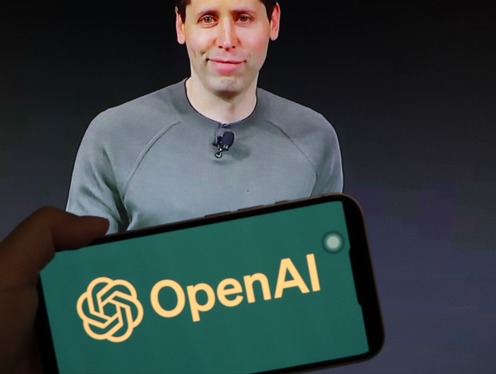
File Photo/NBD
NO.1 OpenAI to Open Office in Japan This Month
According to foreign media, OpenAI, an American artificial intelligence research company, will establish an Asian office in Tokyo, Japan in April. This will be its third international office as the company begins to expand its international operations. It is reported that the Japanese office will be OpenAI's first in Asia. The company has already established international offices in London and Dublin last year.
Commentary: OpenAI's expansion reflects its globalization strategy, which will help it establish influence in the Asian market and promote industry cooperation.
NO.2 Deepmind Founder Warns of AI Going Cryto
As the hottest topic in the investment market in the past two years, hundreds of billions of funds are pouring into listed AI concept stocks and various emerging AI startups in various ways. DeepMind cofounder Demis Hassabis warned that the “hype” around AI could have negative consequences as the industry comes of age, just like bitcoin.
Commentary: Hassabis's warning highlights the investment risks in the AI industry, calling on the industry and investors to be cautious and avoid bubbles.
NO.3 Samsung May Add AI Features to Bixby
Samsung could add generative artificial intelligence technology to its voice assistant Bixby, a top executive at the company told CNBC, as the South Korean giant looks to enhance the appeal of its devices. Bixby was launched with Samsung's Galaxy S8 smartphone in 2017, and the software offers many smart features, including live translation and restaurant recommendations.
Commentary: Samsung's move to strengthen Bixby's AI capabilities shows its determination to maintain its technological leadership in the smartphone market.
NO.4 Scientists Discover New Method for Locating Single Atoms
Recently, engineers and physicists at University College London in the UK have developed a new method that successfully locates individual atoms in an array for the first time. Its near 100% accuracy and scalability can be used to manufacture quantum computers, and its near-zero failure rate increases the possibility of building a universal quantum computer. The research was published in the latest issue of Advanced Materials.
Commentary: This breakthrough technology will promote the development of quantum computing and has significant significance for the technological progress of the entire industry.
Disclaimer: The content and data in this article are for reference only and do not constitute investment advice. Please verify before using.


 川公网安备 51019002001991号
川公网安备 51019002001991号





